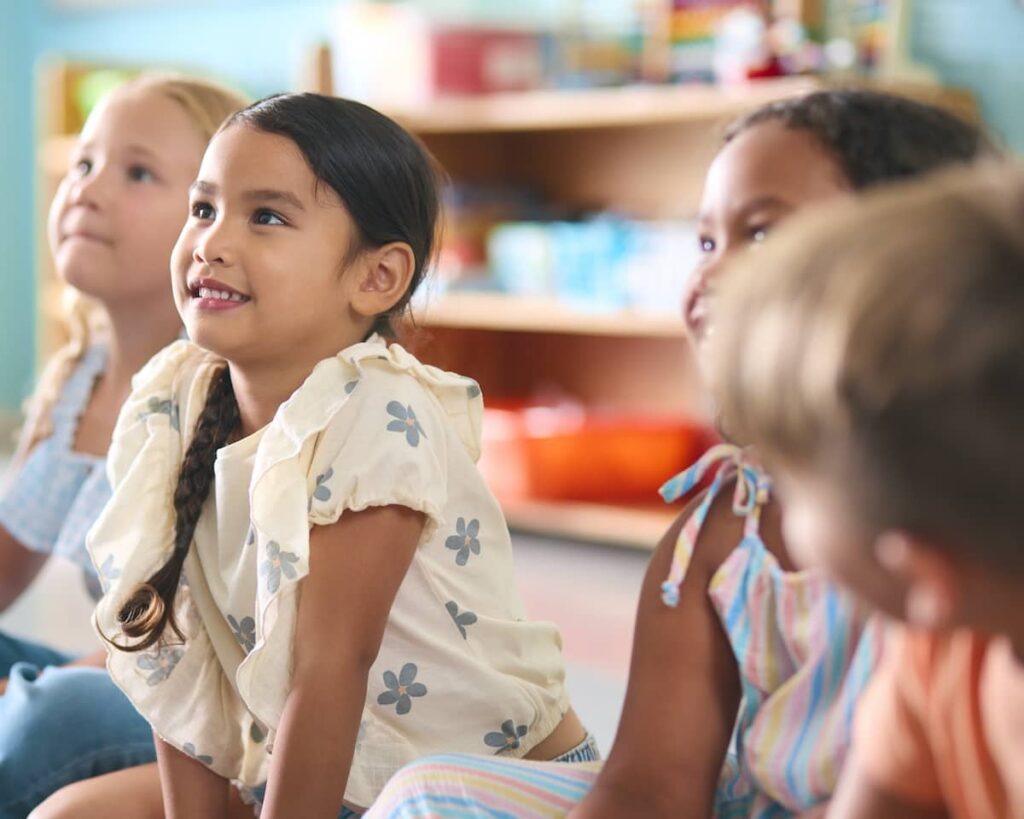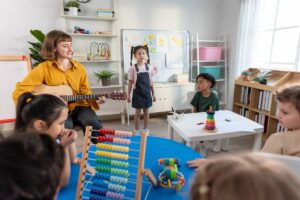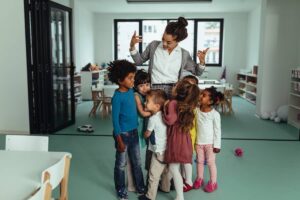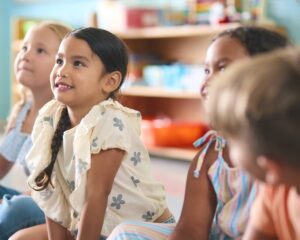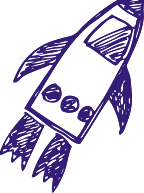Montessori education is a method that prioritizes child-led learning and prepared environments to cultivate a child’s natural desire to learn. Preschool students are encouraged to explore specially designed materials that promote self-correction, fostering a child’s growing sense of independence and self-confidence. At Montessori preschools like the Montessori Academy of Chino, we believe in allowing students to explore within our classrooms and select activities that interest them. If the Montessori method sounds appealing, you may think, ‘is there a preschool near me?’.
If you live in the Chino, CA, area, the Montessori Academy of Chino may be the perfect choice for you and your child.
What makes a Montessori education different?
According to a recent study cited in Psychology Today, Montessori-educated students were found to be a year ahead of their counterparts receiving a more traditional education when evaluated in sixth grade. Montessori students especially excelled in language, math, and general academic ability. This study also measured nonacademic skills and found that Montessori students had more robust executive function capabilities such as self-control and working memory.
What is a Montessori Education?
The primary goal of Montessori education is to foster a child’s natural desire to learn. The method is based on Dr. Maria Montessori’s work with children in San Lorenzo, Italy, in 1907. Dr. Montessori was tasked with developing a childcare center in an inner-city district in Rome. The children attending her center were considered some of the most disadvantaged children in Rome, and many educators at the time believed it would be impossible to provide an adequate education.
Dr. Montessori observed children interested in learning and taught themselves by interacting with their surroundings. She designed materials encouraging independent learning and created the “Children’s House,” where these supposedly unteachable children thrived.
What Makes a Montessori Education Different?
Child-directed learning, uninterrupted work time, multi-age classrooms, and Montessori-designed materials are at the core of any Montessori classroom. These components create an environment where children become self-reliant, developing problem-solving skills that support academic achievement.
Child-Directed Learning
Child-directed learning allows children to focus on what interests them. They choose what to work on without time constraints. Teachers support their choices, providing guidance when needed. Children create a structure based on their development.
While instinct may tell us that preschool-aged children cannot direct their learning, science tells us the opposite. Montessori education works with the natural ability in all of us to follow our inclinations and use that inherent curiosity to propel us through learning and growing.
Uninterrupted Work Time
Uninterrupted work time is often called “open play” in traditional preschools. For Dr. Montessori, the word “play” devalues what’s going on—learning. Adults are free to interrupt play, but children shouldn’t interrupt adults when working. By creating “work time,” Dr. Montessori established respect for a child’s so-called play. Respect for the child is an essential value of the Montessori classroom.
Multi-Age Classrooms
Dr. Montessori spent much time observing how children learned from one another. She observed that children also developed social and emotional skills as they interacted with children of different ages and cultures. In Montessori multi-age, multi-cultural classrooms, older children help younger children solve problems, providing a more holistic approach to learning and growing social intelligence.
Montessori-Designed Materials
Montessori materials are toys and objects designed to promote sensory development and self-reliance. These are self-correcting tools, meaning there is only one way to use them. For example, a set of wooden blocks helps children learn that placing large blocks on top of smaller blocks causes the tower they’re building to collapse. As they manipulate the blocks, they learn that stacking larger blocks at the bottom creates a more stable tower. With self-correcting materials, children learn without adult intervention, granting them confidence in their own skills and knowledge.
How is a Montessori Curriculum Different?
Montessori classrooms incorporate all the activities and subjects found in more traditional academic curriculums, such as math, science, language, history, geography, art, music, and crafts. But Montessori education goes further by offering:
- Sensory Development: Using their five senses helps children sort, categorize, and incorporate new information. Recent research has found that involving the senses in learning can enhance student engagement and thus, outcomes, leading to better retention and retrieval of information.
- Culture Awareness: Cultural diversity helps children see the world around them and raises their awareness of other cultures and customs. It builds understanding and tolerance of different cultures, their people, and their traditions.
- Cooking and Nutrition: Cooking is an adult activity that children want to do. Hands-on activities help them learn about food groups and how food keeps the body healthy. Incorporating foods from other countries reinforces cultural awareness.
- Practical Life Skills: Preschoolers like doing things themselves. Whether washing dishes or sweeping the floor, children want to contribute to daily life. Providing them with an environment where they can master practical life skills forms a foundation for solid work habits.
Adding these examples of practical knowledge into a standard curriculum reflects Montessori education’s emphasis on holistic development.
Where is a Montessori Preschool Near Me?
The Montessori Academy of Chino incorporates the Montessori philosophy into its preschool programs. Its Montessori-trained teachers create a welcoming environment to nurture your child’s development and establish a life-long love of learning. If you need a preschool in the Chino area, contact us to learn more about how the Montessori method encourages children and has done so for over 100 years.

